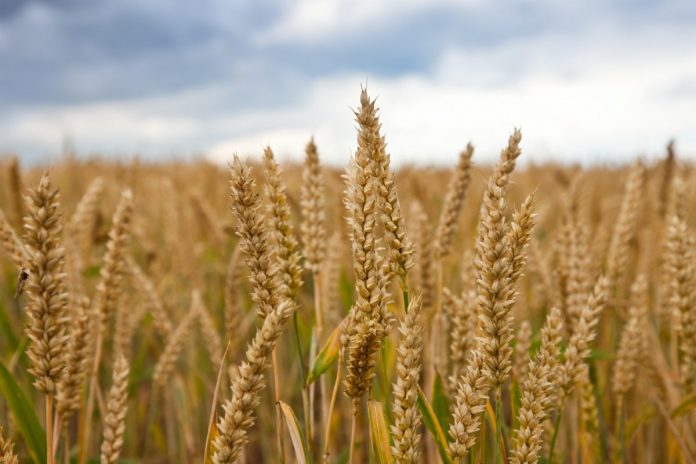Gavin Whitmore, Biodiversity Manager at European Crop Protection Association (ECPA) sheds light on the global challenges that face the agriculture sector
Farmers and an impressive array of agri food-chain actors provide us with a plentiful supply of safe, healthy and affordable food. European consumers, who are accustomed to this ready and steady availability of food are often unaware of the global challenges facing agriculture.
Agriculture has to produce more raw materials to satisfy the increasing and diversifying demands of a growing world population, which is expected to grow by more than a third (around 2.3 billion people) between 2009 and 2050; these figures are often repeated, and for good reason – the challenge they present to global food production is enormous. Projections show that feeding a world population of 9.1 billion people in 2050 will require raising overall food production by some 70% between 2005 and 2050.
Our demands on agriculture don’t stop at production, the sector must also contribute to economic prosperity and the social wellbeing of rural areas, and help preserve natural resources such as land, water and biodiversity – in the face of pressures from urban expansion, industrialisation and a changing climate. There is also a pressing need to protect and restore the quality of existing farmland.
Highly productive and resource efficient agriculture mitigates the problems associated with all of these challenges, because it enables us to have more of everything – more crops, and more biodiversity and natural habitats.
Protect habitats, conserve biodiversity
Agriculture is a major contributor to land use change, which often implies the destruction of natural habitats – the single most important driver of biodiversity loss.
By protecting crops from pests and disease, farmers can optimise yields on the existing agricultural land base, make efficient use of resources (inc. fuel, time, and capital) and prevent the loss of natural habitat that occurs when agricultural land expands to compensate for crop losses.
Without crop protection, losses for certain crops can exceed 80% of potential yield, and low input farming – as typified by organic agriculture – is estimated as averaging up to 34% lower yields than productive agriculture within the EU.
If we wish to maintain and improve yields and make efficient use of natural resources, the use of plant protection products must continue; there are currently no viable alternatives to pesticide use in either conventional or organic farming. Efficient production technologies are imperative to allow us to close yield gaps; however, society must use these technologies in an appropriate way to ensure that agriculture plays a central role in delivering sustainable solutions.
No unacceptable affects on the environment
Pesticides are formulated to protect crops by discouraging, confusing, altering the behaviour, or killing target pests, diseases and pathogens. When we consider biodiversity protection, this raises questions about the impact on non-target species that may be unintentionally exposed to pesticides.
Modern pesticides are characterised by their high efficacy and targeted modes of action; the biologically active characteristics of pesticides that pose risk to non-target species are acknowledged and accommodated in European pesticide regulations. Pesticides are one of the most regulated product classes on the European market, and the real drivers of the large scale loss of biodiversity (including land use change) are not subject to regulation as rigorous as that applied to pesticides.
Science, research and development have given us sophisticated crop protection solutions. While their use is certainly not without risk, a sensible, risk-based approach to EU legislation ensures farmers have access to products that when used correctly have no unacceptable effects on their health or the environment. This same stringent legislation allows European consumers a high degree of confidence in the safety, availability and affordability of their food.
Supporting Best Management Practices for productivity and biodiversity protection.
Our industry is committed to providing sustainable crop protection solutions; we believe that for agriculture to be sustainable, it must be efficient, productive and contribute to a resilient natural environment. We are acutely aware of society’s demand that crops be produced with minimal environmental impact – and we know that this can only be achieved if farmers have access to appropriate tools and knowledge of best management practices.
The European crop protection industry is not directly engaged in the management of agricultural land, but industry led stewardship initiatives and outreach to key stakeholders see expertise in crop protection, risk management and biodiversity conservation come together to promote guidance on practices beneficial to both harvests and biodiversity.
Maintaining Europe’s position as a world leader in agriculture
As society embraces the challenge of sustainable agriculture, there is growing consensus on the need to combine high agricultural productivity with well-considered environmental protection; however, Europe’s full potential will only be realised with ambitious science-based policy and political support for innovation. The combined challenges of agricultural production and biodiversity protection require that we exploit proven technologies whilst continuing to invest in the research and development of solutions for tomorrow.
Strong public support for biodiversity protection, a knowledgeable and passionate community of famers, and the engaged expertise of industry can be combined to make the rural environmental more biodiversity friendly and more productive.
We are always working to make things better; and believe that solution-oriented dialogue with farmers, public, and policy makers, is critical for a sustainable productive future and maintaining Europe’s position as a world leader in agriculture.
Gavin Whitmore
Biodiversity Manager
European Crop Protection Association (ECPA)
gavin.whitmore@ecpa.eu












This is okay but i need what are the issues that are happening in world under the agriculture sector . The Information that you provided is good. But the information that i needed is not provided.